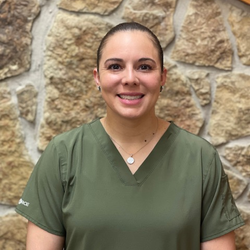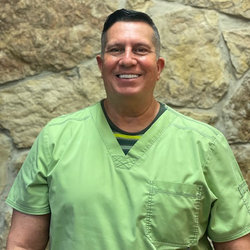Extractions in Del Rio, TX
Dental extractions are common procedures that many people will need at some point in their lives. While they may seem intimidating at first, knowing what to expect can help ease any anxiety or concerns you may have.
Why Do You Need a Dental Extraction?
There are a number of reasons why you might need a dental extraction. One common reason is that your tooth has suffered severe damage, whether due to trauma or decay, and cannot be saved through other means, such as root canal treatment. In these cases, the tooth must be removed in order to prevent further pain and infection.
Another reason for extraction may be overcrowding - if your mouth doesn't have enough space for all your teeth to grow properly, it may be necessary to remove one or more teeth in order to make room. This can also help with issues such as misaligned bites or crooked teeth.
In some cases, wisdom teeth - also known as third molars - may need to be extracted. These teeth often cause problems because they are the last ones to come in, and there is often not enough room for them at the back of the mouth.
Ultimately, any decision about whether you need an extraction will depend on your individual circumstances and should always involve consultation with your dentist or oral surgeon.
What Happens During a Dental Extraction?
During a dental extraction, the dentist will first administer a local anesthetic to numb the area around the tooth that needs to be removed. For more complex extractions or for anxious patients, conscious sedation may also be used.
Once you are comfortable and numb, the dentist will use special tools to loosen the tooth from its socket in the jawbone. If necessary, they may need to make an incision in your gum tissue to access the tooth root.
Once the tooth is loosened, it can then be gently pulled out of its socket using forceps. You may feel some pressure during this process but should not experience any pain.
Afterward, your dentist will provide you with gauze pads to bite down on firmly for several minutes. This helps control bleeding and allows a blood clot to form in the place where your tooth was extracted.
In some cases, stitches may also be needed if an incision is made during your extraction. Your dentist will provide instructions on how to care for yourself at home following your procedure and what foods you should avoid while recovering.
How to Care for Your Mouth After a Dental Extraction?
After a dental extraction, it is important to take good care of your mouth to avoid complications and promote healing. Here are some tips on how to do that:
- Firstly, make sure to bite down gently on the gauze pad placed over the extraction site for about 30-45 minutes after leaving the dentist's office. This pressure helps stop bleeding.
- Use an ice pack or cold compress for swelling and pain control. Apply it in 10-minute intervals with breaks in between.
- Avoid drinking from a straw or smoking as this can dislodge the blood clot forming at the extraction site resulting in painful dry sockets.
- Soft foods such as soup, scrambled eggs, and mashed potatoes are recommended during the recovery period avoiding hard-to-chew items like nuts or crunchy vegetables, which may irritate your gums.
- Be gentle while brushing your teeth, but still maintain an oral hygiene routine by using warm salt water rinses every few hours after a day of surgery.
It's normal to experience mild pain and discomfort, but if there is excessive bleeding beyond 24 hours or if a fever develops, contact your dentist promptly. Taking proper care of yourself following extraction can help you feel better sooner and prevent any complications that could arise from not properly caring for your mouth.
Remember to always follow your dentist's instructions for proper care and contact them; visit Cadena Dentistry at 606 N Bedell Ave, Del Rio, 78840, or call (830) 719-1505. We can assess your candidacy for the procedure and help determine the best restoration option to meet your needs and goals.
Working Hours
- MON - THU8:00 am - 5:00 pm
- FRI8:00 am - 12:00 pm
- SAT - SUNClosed


